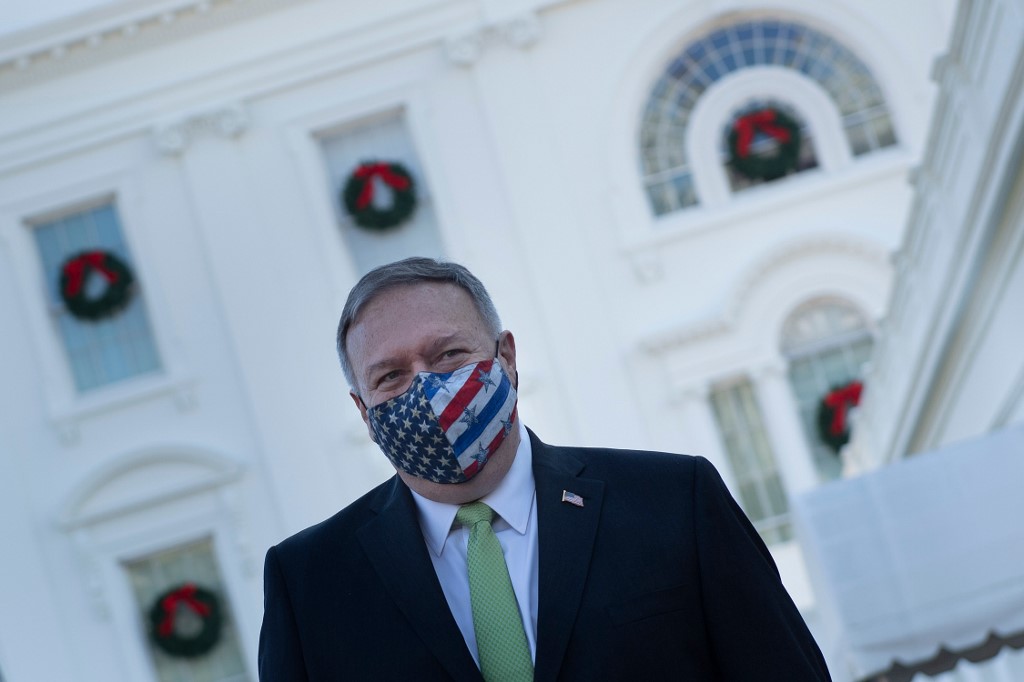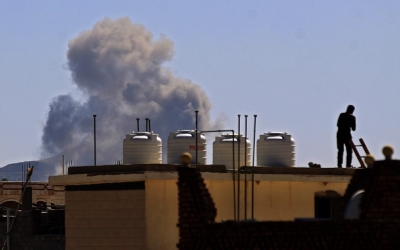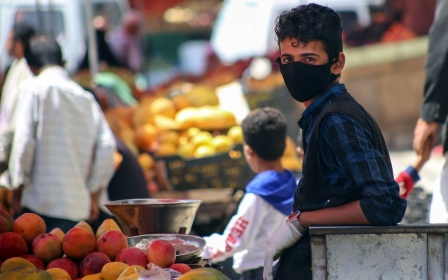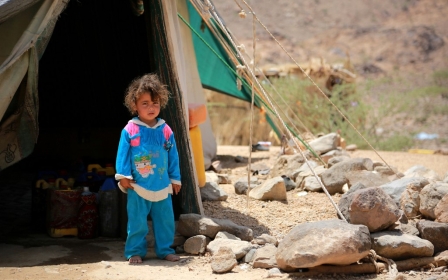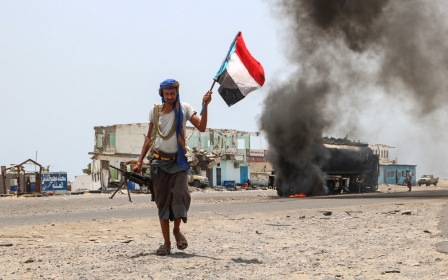How US terror designation against Yemen's Houthis could prolong the war
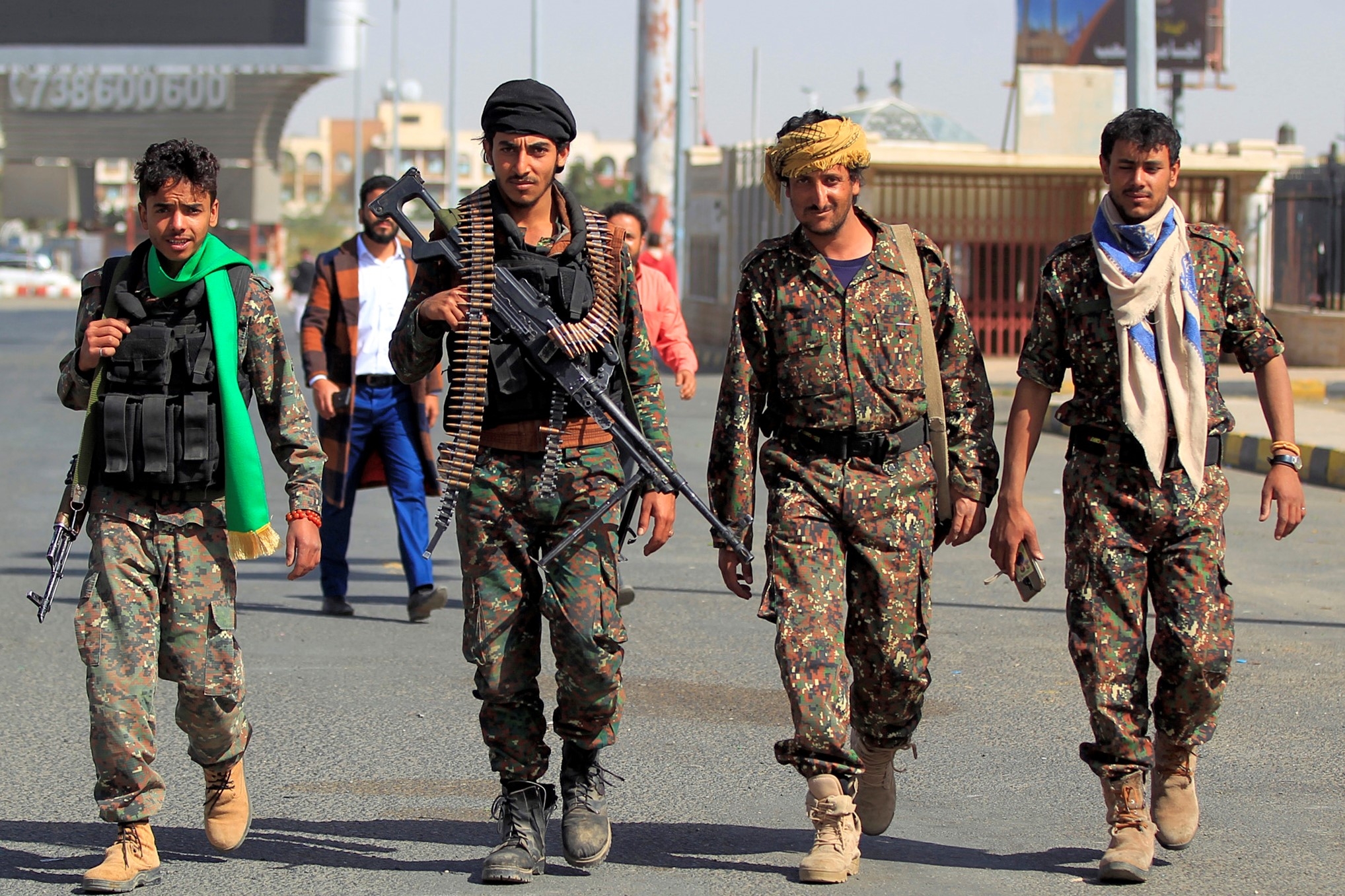
The US decision to designate the Houthis in Yemen as a foreign terrorist organisation aims to hold the group “accountable for its terrorist acts, including cross-border attacks threatening civilian populations, infrastructure, and commercial shipping,” according to Secretary of State Mike Pompeo.
“The designations are also intended to advance efforts to achieve a peaceful, sovereign, and united Yemen that is both free from Iranian interference and at peace with its neighbours,” Pompeo said in a statement this week.
“Progress in addressing Yemen’s instability can only be made when those responsible for obstructing peace are held accountable for their actions.”
There is no doubt that the Houthis share responsibility for the crisis Yemen is living through today. However, that does not necessarily make them terrorists
Yet, the negatives of designating the Houthis as a terrorist organisation outweigh any potential positives. In Yemen, where more than two million children under five do not have enough to eat and more than 24 million people need humanitarian assistance, the US move will make aid agencies’ missions in Yemen even harder.
Michael Page, the deputy Middle East director at Human Rights Watch, told Middle East Eye: “Yemeni civilians already face existential threats to their survival, including a looming risk of famine. The Trump administration’s last-minute, cynical designation of the Houthis as a foreign terrorist organisation will simply add another burden for Yemeni civilians trying to survive, as it could force humanitarian aid groups to limit or end delivering critical aid that millions of Yemenis rely on in areas under Houthi control, where the bulk of the country’s population lives.”
Thus, it appears the US move will not benefit average Yemenis much. Rather, citizens will likely be the main victims.
The Trump administration views the Houthis as an Iranian proxy, and the terrorism designation comes as part of the White House’s “maximum pressure” campaign against Iran and its allies. But even this viewpoint is imprecise.
In 1992, a group called al-Shabab al-Mumin (“the Believing Youth”) was established by Zaydi religious leaders in the northern city of Saada. While the Zaydis belong to the Shia branch of Islam, they are considered to be the closest of all Shia factions to Sunnis, and they differ from Twelvism, the branch to which most Iranians belong. The aim of al-Shabab al-Mumin was to revive Zaydism among young people.
In the late 1990s, Hussein Badreddin al-Houthi, the brother of the Houthis’ current leader, joined the movement and shifted its focus from religion to politics. He was killed in 2004 during a war between the Houthis and the Saleh government.
In 2011, the group reportedly adopted its formal name, Ansar Allah, for the first time. In September 2014, several years after the eruption of the uprising that ousted former President Ali Abdullah Saleh, the Houthis seized Sanaa, forcing President Abd Rabbuh Mansour Hadi into exile.
Exaggerating Iran's influence
Since the takeover of Sanaa, the Houthis have increasingly been portrayed as “Iran-backed”. Yet, while Tehran stepped up military assistance to the Houthis after the eruption of the ongoing, six-year war, Iran does not control the group’s decision-making.
Iran’s influence in Yemen is often exaggerated. As international affairs analyst Thomas Juneau notes: “Iran’s investment in Yemen has been limited; it has therefore brought only limited influence.” Unless the Trump administration proffers evidence of how the Houthis are direct Iranian proxies, the relationship should not be described in this manner.
The Yemeni government has expectedly welcomed the US move, noting in a statement: “The Houthis deserve to be classified as a foreign terrorist organization not only for their terrorist acts, but also for their permanent efforts to prolong the conflict and cause the worst humanitarian disaster in the world.”
Meanwhile, Mohammed al-Bukhaiti, a member of the Houthis’ political bureau, told MEE: “This step is not in America’s interest as it will insulate America from playing any political role in the future, whether in Yemen or in the region, as Yemen has become a regional power…
"We, as Yemeni people, got used to turning challenges into opportunities, as Yemen came out stronger due to this aggression and this blockade, and America did not achieve its purpose of excluding Yemen, particularly since Yemen has been able to change the balance of power in its favour and at the expense of the forces of aggression.”
Saudi Arabia's role
There is no doubt that the Houthis share responsibility for the crisis Yemen is living through today. However, that does not necessarily make them terrorists, nor does it mean that they are the only party to share such responsibility.
The Yemen war has killed more than 100,000 people, including more than 12,000 civilians. The Saudi-led coalition, which intervened in March 2015, is responsible for two-thirds of these deaths. Thus, the Trump administration’s condemnation of the party responsible for a smaller proportion of the death toll - while providing unconditional support for Saudi Arabia - is hypocritical.
“This decision by an outgoing administration makes no sense from the political, moral or national security point-of-view,” the former deputy chief of mission at the US embassy in Sanaa, Nabeel Khoury, told MEE. “The designation would apply to all parties involved in the war in Yemen, since they are all likely guilty of war crimes, or it wouldn’t apply at all.”
The designation of the Houthis as terrorists will take effect on 19 January, the day before president-elect Joe Biden’s inauguration. Should the Biden administration push for a political solution in Yemen, it is likely that the designation will prove to be an obstacle.
“Politically, if you want peace in Yemen, the Houthis are an important player in this war; you need to be able to negotiate with them,” Khoury said. “So, designating them as terrorists would complicate things for the Biden administration, which has the intention of trying to end the war … The Houthis themselves will be less inclined to talk to American diplomats if they are officially designated as terrorists. An American peace initiative will now be a more difficult proposition than it was before the designation.”
Further polarisation
UN-led peace efforts may also be negatively impacted by the US move. Spokesman Stephane Dujarric said the UN was “concerned that the designation may have a detrimental impact on efforts to resume the political process in Yemen, as well as to polarise even more the positions of the parties to the conflict”.
For the peace process to succeed in Yemen, no party should be excluded from the dialogue - particularly the Houthis, who are a significant factor in the equation. It is not clear yet as to whether the Saudi-led coalition will take advantage of the US designation to prolong or expand its military campaign in Yemen, which would push the warring parties even further from a political solution.
The views expressed in this article belong to the author and do not necessarily reflect the editorial policy of Middle East Eye.
This article is available in French on Middle East Eye French edition.
Middle East Eye propose une couverture et une analyse indépendantes et incomparables du Moyen-Orient, de l’Afrique du Nord et d’autres régions du monde. Pour en savoir plus sur la reprise de ce contenu et les frais qui s’appliquent, veuillez remplir ce formulaire [en anglais]. Pour en savoir plus sur MEE, cliquez ici [en anglais].



